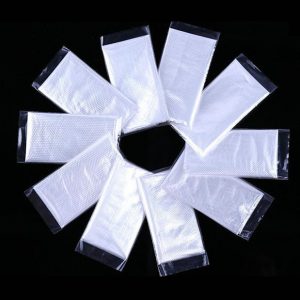Latex gloves have been widely used in various industries and applications for several reasons. Here are some of the advantages of latex gloves:
- Excellent Barrier Properties: Latex gloves provide an effective barrier against a wide range of contaminants, including bacteria, viruses, chemicals, and other harmful substances. This makes them suitable for use in industries where protection against potential hazards is crucial, such as healthcare, laboratory work, and industrial settings.
- Comfort and Fit: Latex gloves offer a snug and comfortable fit, providing excellent dexterity and tactile sensitivity. This feature is essential for tasks that require fine motor skills and precise handling, such as medical examinations and intricate laboratory work.
- Elasticity and Flexibility: Latex is a highly elastic material, which allows the gloves to stretch and conform to the shape of the wearer’s hand. This flexibility enhances comfort during prolonged use and reduces hand fatigue.
- Tear and Puncture Resistance: Latex gloves are durable and resistant to tears and punctures, making them suitable for tasks that involve handling sharp objects or rough surfaces. Their resilience helps prevent accidental exposure to harmful substances.
- Biodegradable and Renewable: Latex is a natural material derived from the sap of rubber trees. As a renewable resource, latex is considered more environmentally friendly than synthetic glove materials. Natural latex gloves are also biodegradable, reducing their impact on waste management.
- Cost-Effective: Latex gloves are generally more cost-effective compared to some synthetic alternatives, such as nitrile gloves. This makes them a popular choice for industries that require large quantities of disposable gloves, like healthcare facilities and food service establishments.
- Tactile Sensitivity: The thinness and flexibility of latex gloves allow for excellent tactile sensitivity, allowing wearers to feel and manipulate small objects with precision. This is particularly advantageous in medical and laboratory settings where precise tactile feedback is necessary.
- Compatibility with Various Chemicals: Latex gloves offer good resistance to a wide range of chemicals, including acids, bases, and alcohols, making them suitable for use in industries where handling chemicals is common.
It’s important to note that while latex gloves offer many advantages, some individuals may have latex allergies. For those with latex allergies, alternative glove materials like nitrile or vinyl gloves are recommended. Additionally, environmental concerns and latex allergies have led to an increasing use of synthetic alternatives to latex gloves in various industries.

![]()














